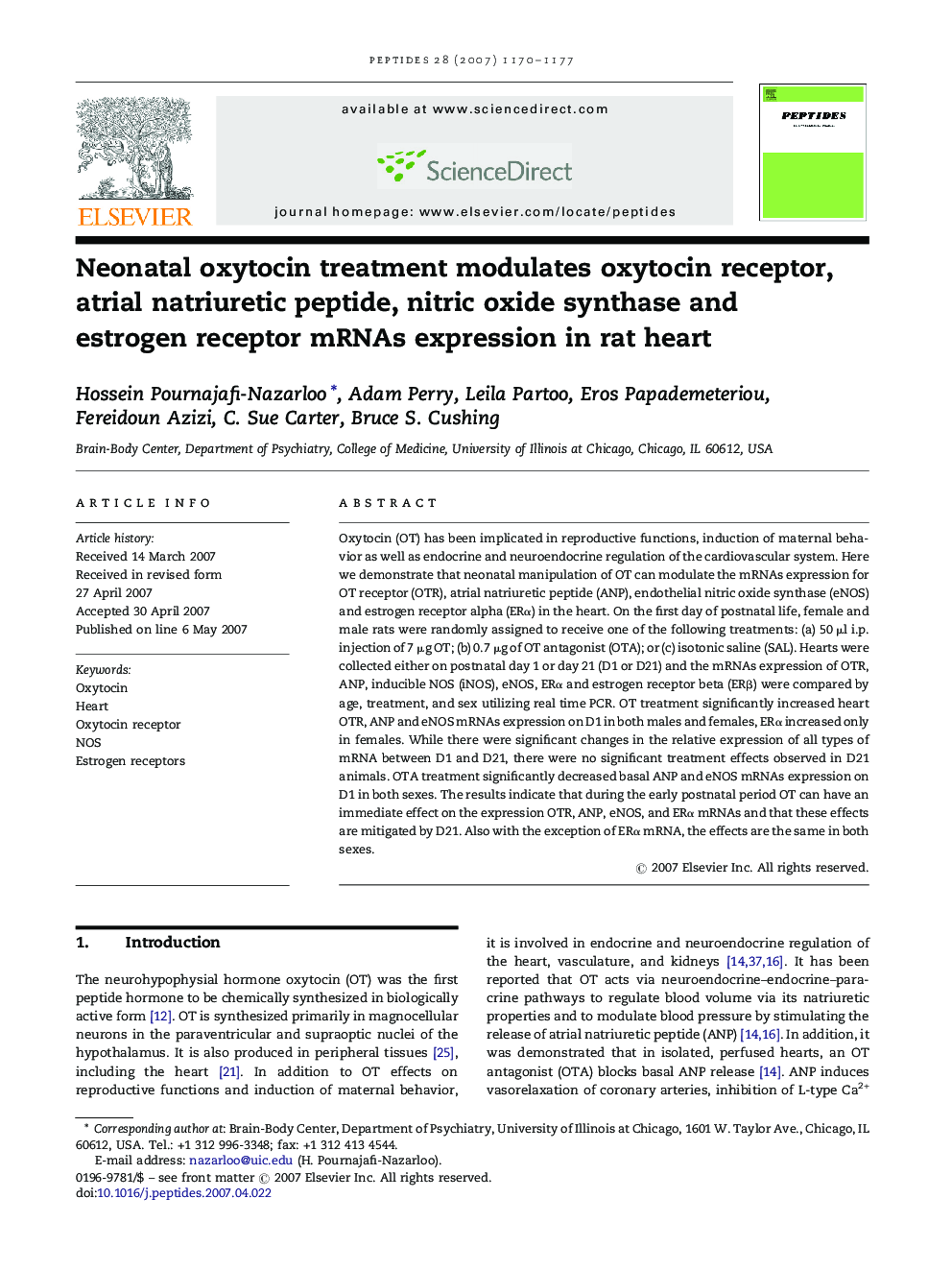| Article ID | Journal | Published Year | Pages | File Type |
|---|---|---|---|---|
| 2008530 | Peptides | 2007 | 8 Pages |
Oxytocin (OT) has been implicated in reproductive functions, induction of maternal behavior as well as endocrine and neuroendocrine regulation of the cardiovascular system. Here we demonstrate that neonatal manipulation of OT can modulate the mRNAs expression for OT receptor (OTR), atrial natriuretic peptide (ANP), endothelial nitric oxide synthase (eNOS) and estrogen receptor alpha (ERα) in the heart. On the first day of postnatal life, female and male rats were randomly assigned to receive one of the following treatments: (a) 50 μl i.p. injection of 7 μg OT; (b) 0.7 μg of OT antagonist (OTA); or (c) isotonic saline (SAL). Hearts were collected either on postnatal day 1 or day 21 (D1 or D21) and the mRNAs expression of OTR, ANP, inducible NOS (iNOS), eNOS, ERα and estrogen receptor beta (ERβ) were compared by age, treatment, and sex utilizing real time PCR. OT treatment significantly increased heart OTR, ANP and eNOS mRNAs expression on D1 in both males and females, ERα increased only in females. While there were significant changes in the relative expression of all types of mRNA between D1 and D21, there were no significant treatment effects observed in D21 animals. OTA treatment significantly decreased basal ANP and eNOS mRNAs expression on D1 in both sexes. The results indicate that during the early postnatal period OT can have an immediate effect on the expression OTR, ANP, eNOS, and ERα mRNAs and that these effects are mitigated by D21. Also with the exception of ERα mRNA, the effects are the same in both sexes.
